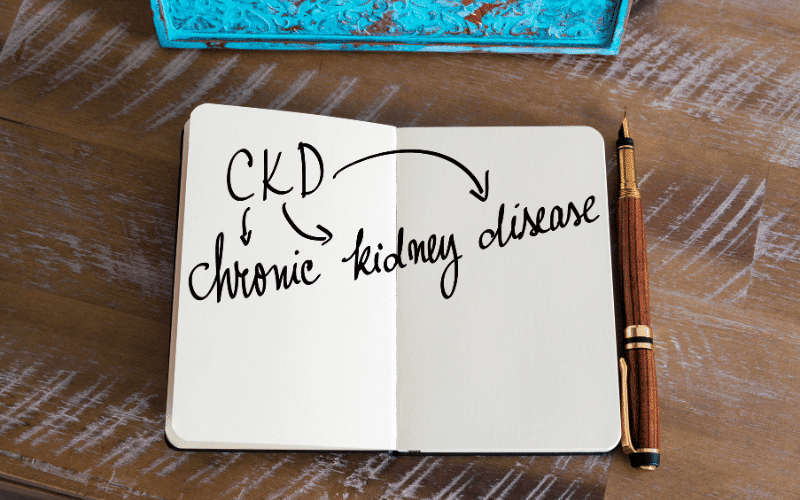Frequently Asked Questions About Chronic Kidney Disease

1. What causes chronic kidney disease?
Chronic kidney disease (CKD) can be caused by various factors, including:
• Diabetes: High blood sugar levels can damage the blood vessels in the kidneys, impairing their ability to filter waste products effectively.
• High blood pressure: Persistently elevated blood pressure can also damage the blood vessels in the kidneys, leading to CKD.
• Glomerulonephritis: This is an inflammation of the glomeruli, which are the tiny filtering units in the kidneys. It can result from various underlying conditions, such as infections, autoimmune diseases, or genetic disorders.
• Polycystic kidney disease: This is a hereditary condition characterized by the development of numerous cysts in the kidneys, which can ultimately impair kidney function.
• Obstructions and recurrent kidney infections: These can cause damage to the kidneys over time, contributing to CKD.
2. Can chronic kidney disease be cured?
While there is no cure for chronic kidney disease, early detection and appropriate treatment can help slow down the progression of the disease, manage symptoms, and improve the individual’s quality of life. Treatment options may include medications to manage underlying conditions, such as diabetes or high blood pressure, dietary modifications, and dialysis or kidney transplantation in advanced stages.
3. What lifestyle changes can help manage chronic kidney disease?
Lifestyle changes that can help manage CKD include:
• Eating a healthy diet: Consuming a diet rich in fruits, vegetables, whole grains, lean proteins, and low-fat dairy products can help support kidney health.
• Limiting salt intake: Reducing sodium consumption can help control blood pressure and prevent fluid retention.
• Exercising regularly: Engaging in regular physical activity can help control blood sugar levels, maintain a healthy weight, and manage blood pressure.
• Quitting smoking: Smoking can damage blood vessels and increase the risk of kidney disease.
• Limiting alcohol intake: Excessive alcohol consumption can contribute to high blood pressure and kidney damage.
4. What are the potential complications of chronic kidney disease?
Complications of CKD can include:
• Cardiovascular disease: CKD increases the risk of heart attack, stroke, and other cardiovascular issues.
• Anemia: A decrease in red blood cell production can result in anemia, which can cause fatigue, weakness, and shortness of breath.
• Bone disease: CKD can lead to imbalances in calcium and phosphorus, resulting in weakened bones and an increased risk of fractures.
• Electrolyte imbalances: CKD can cause imbalances in electrolytes, such as potassium, sodium, and magnesium, leading to various symptoms and complications.
• Kidney failure: In advanced stages, CKD can progress to kidney failure, requiring dialysis or kidney transplantation.
5. How is chronic kidney disease diagnosed?
CKD is typically diagnosed through a combination of blood tests, urine tests, and imaging studies. Blood tests can evaluate kidney function by measuring the levels of waste products, such as creatinine and blood urea nitrogen (BUN). Urine tests can assess protein levels, signs of infection, and other indicators of kidney damage. Imaging studies, such as ultrasound or CT scan, can provide a visual representation of the kidneys and help identify structural abnormalities or obstructions. In some cases, a kidney biopsy may be performed to determine the specific cause of kidney damage.
Conclusion
Recognizing the early signs of chronic kidney disease is crucial for timely intervention and treatment. By being aware of the top 10 early warning signs of CKD, individuals can take proactive measures to maintain their kidney health and potentially slow down the progression of the disease. If you experience any of these symptoms, it is essential to consult with a healthcare professional for a proper evaluation and appropriate treatment plan. Taking charge of your kidney health can significantly impact your overall well-being and quality of life.